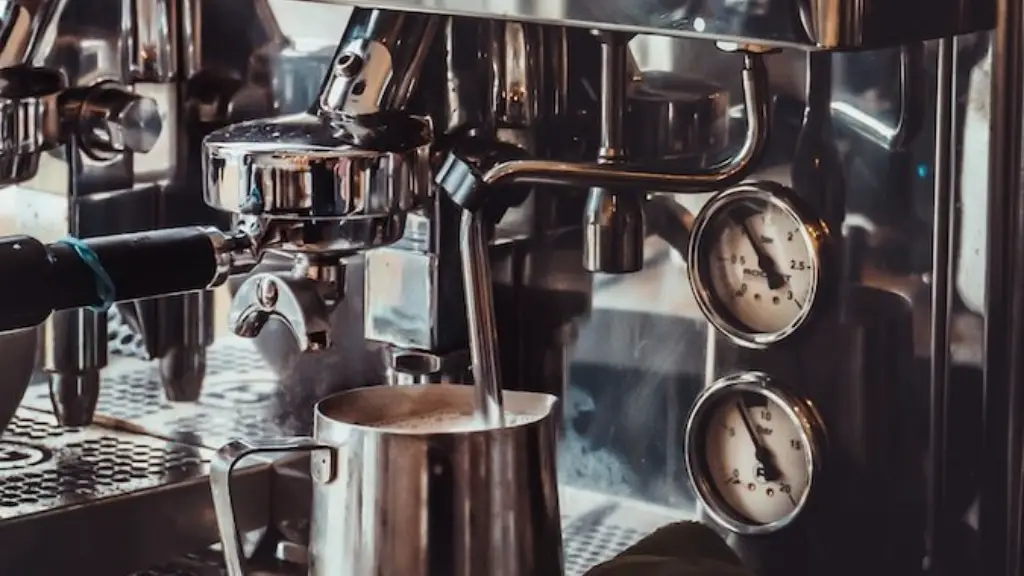What Is Driving And Drinking Coffee?
Driving and drinking coffee is a phrase used to describe the habit of drinking coffee while driving on the road. This habit can be seen in many parts of the word and is becoming increasingly popular, as a way of keeping alert behind the wheel. The implications, however, can be significant, as there is evidence to suggest that the practice is not only detrimental to one’s safety, but can also be considered illegal in some jurisdictions.
Caffeinated Drinks And Impairment
While driving and drinking coffee is a legal activity, it is important to recognize that consuming caffeine can lead to impairment. Caffeine is a stimulant drug and consuming it can lead to a temporary increase in physical and mental alertness. However, some studies have suggested that too much caffeine can lead to a feeling of ‘over-caffeination’, where an individual may become agitated, experience elevated blood pressure levels, or even cause them to become dizzy or disoriented. In addition, the effects of caffeine can be particularly potent when mixed with alcohol or other drugs, increasing the likelihood of an accident behind the wheel.
The Risks Associated With Coffee Drinking And Driving
Drinking coffee while driving also increases the risk of an accident due to driver inattention. Even if drivers are able to remain alert, holding a hot beverage while driving can be dangerous and distracting. In addition, hot coffee can spill on to the driver and potentially cause them to lose control of the vehicle. According to experts from the National Safety Council, even a few sips of coffee can lead to increased risks of an accident, particularly for new drivers.
Is It Illegal To Drink Coffee While Driving?
The laws on drinking coffee while driving vary from state to state. In some states, it is illegal to hold any beverage while driving, and thus coffee is prohibited. In other states, coffee is generally not prohibited, but drivers may still face a fine or other penalty if they are deemed to be driving dangerously.
In states which have no legislation specifically relating to coffee drinking while driving, it is generally considered a traffic violation to drive while inattentive. In this case, drinking coffee while driving would be considered a form of inattentiveness and could result in a legal penalty.
Is Alcohol Different From Drinking Coffee?
Yes, drinking alcohol while driving is illegal in all states. Alcohol is a depressant and has a greater impact on a person’s impairment then caffeinated drinks. The legal limit of blood-alcohol concentration (BAC) has been set at a level of 0.08% for commercial drivers and 0.05% for non-commercial drivers. There is no similar legal limit for caffeine concentration, as it is impossible to measure and quantify the effect of caffeine on an individual’s level of alertness.
Widespread Concerns About The Practice
When it comes to drinking coffee while driving, there are concerns from both law enforcement and safety experts.
Safety experts are concerned with the potential impairment that coffee can cause and the increased risk of a crash or accident. Meanwhile, law enforcement is concerned that there is no definitive legal limit for caffeine and that individuals may not be aware of the risks associated with drinking coffee while driving.
Alternatives To Driving And Drinking Coffee
There are alternatives to drinking coffee while driving that can promote a safer driving environment. Firstly, drivers should try to avoid drinking coffee before the drive and should always ensure they are well-rested. This can help to ensure that drivers have a better ability to remain alert and vigilant. Secondly, drivers may consider switching to a non-caffeinated drink such as water or juice to help stay hydrated and alert during the journey. Finally, drivers may consider carrying non-spill containers, such as travel mugs, to avoid the risk of spillage while driving.
Desensitization To The Risks
In many cases, the risks associated with drinking coffee while driving may be desensitized due to its widespread presence. Many drivers may be unaware of the risks or may see it as a minor issue. This can be particularly dangerous in the case of new drivers or those who may not be familiar with the risks that can be caused by drinking coffee while driving.
Public Information Campaigns
In order to address the concerns around drinking coffee while driving, public information campaigns have been introduced in some states. These campaigns focus on informing drivers of the potential risks and dangers associated with drinking coffee while driving, as well as highlighting the importance of self-regulation. For example, in California, a public awareness campaign was launched in 2015, encouraging drivers to be aware of the potential risks associated with drinking coffee behind the wheel.
What Does The Research Say?
Studies have shown that the effects of caffeine on drivers may not be as severe as alcohol, but they can still be significant. One study found that excessive caffeine consumption can lead to a temporary deterioration in cognitive performance and an increased risk of a crash or accident. Additionally, research has found that individuals who consume caffeinated beverages behind the wheel are less likely to comply with traffic safety laws, illustrating the need for greater awareness of the risks associated with this practice.
Current Legislation Regarding Driving And Drinking Coffee
The current legislation concerning drinking coffee while driving is variable, with some states taking a hard-line approach and introducing legislation that prohibits the practice. For example, in California, it is now illegal to drink any beverage while driving, with the exception of water. Other states, such as Florida, do not specifically mention coffee drinking while driving, but drivers may face penalties if they are found to be engaging in distracted driving.
Precautions Drivers Should Take
Drivers should be aware that drinking coffee while driving is a risky activity and can be dangerous and distracting. In addition to avoiding coffee altogether, drivers should also take extra precautions to ensure they remain alert and aware behind the wheel, such as refraining from using cell phones, changing their travel routes to avoid traffic delays, and ensuring they are well-rested before embarking on a long drive.
Conclusion
Overall, it is important to be aware of the risks associated with drinking coffee while driving and to be aware of the legal consequences in different states. Drivers should be aware of the potential for impairment, as well as the potential for distraction and should take extra precautions to ensure they remain safe.



